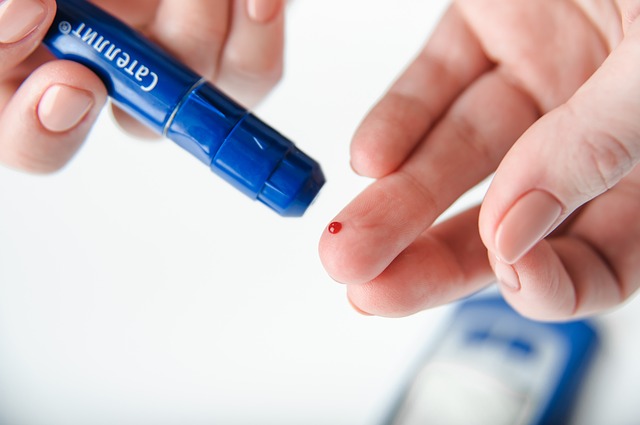Common Medications Increase Cardiac Arrest Risk in Type 2 Diabetes Patients
- A Single US$2.15-Million Injection to Block 90% of Cancer Cell Formation
- WIV: Prevention of New Disease X and Investigation of the Origin of COVID-19
- Why Botulinum Toxin Reigns as One of the Deadliest Poisons?
- FDA Approves Pfizer’s One-Time Gene Therapy for Hemophilia B: $3.5 Million per Dose
- Aspirin: Study Finds Greater Benefits for These Colorectal Cancer Patients
- Cancer Can Occur Without Genetic Mutations?
Warning: Common Medications Increase Cardiac Arrest Risk in Type 2 Diabetes Patients
- Red Yeast Rice Scare Grips Japan: Over 114 Hospitalized and 5 Deaths
- Long COVID Brain Fog: Blood-Brain Barrier Damage and Persistent Inflammation
- FDA has mandated a top-level black box warning for all marketed CAR-T therapies
- Can people with high blood pressure eat peanuts?
- What is the difference between dopamine and dobutamine?
- How long can the patient live after heart stent surgery?
Warning: Common Medications Increase Cardiac Arrest Risk in Type 2 Diabetes Patients.
Scientists Warn of Increased Risk of Cardiac Arrest from Common Medications in Type 2 Diabetes Patients.
Dutch scientists have issued a warning that millions of people in the UK with type 2 diabetes may face a higher risk of cardiac arrest due to certain commonly prescribed medications.
Researchers from the Netherlands found that individuals taking antibiotics, antipsychotic drugs, and prokinetic medications had double the likelihood of experiencing cardiac arrest when the heart suddenly stops pumping blood to the body.
This risk was observed even among patients with no history of cardiovascular disease (CVD).
The study highlighted that while factors like high blood pressure, smoking, and lack of physical activity are known to increase the risk of cardiac arrest, the risk associated with these medications is relatively unknown.

Diabetes is currently considered a “rapidly escalating crisis” in the UK, with the number of individuals affected by the condition surpassing 5 million for the first time.
Researchers from Amsterdam UMC Medical Center evaluated general practitioner records of 689 type 2 diabetes patients who experienced cardiac arrest between 2010 and 2019. Of these patients, more than half (352 individuals) had a history of cardiovascular disease, while the remaining 337 did not.
The research team compared these records with those of 3,230 healthy individuals in a control group without type 2 diabetes.
Several common medications, including a prokinetic drug called domperidone, an antipsychotic drug, antibiotics such as macrolides and fluoroquinolones, and the antipsychotic drug flupenthixol, were found to increase the risk of cardiac arrest.
The researchers discovered that taking antipsychotic medications increased the risk by 187% in individuals without CVD. Meanwhile, the risk associated with both antibiotics increased by 66%.
Prokinetic medications raised the risk of cardiac arrest by 66% in type 2 diabetes patients, regardless of their cardiovascular disease history.
The researchers attributed this effect to these medications prolonging the QTc interval of the heart, which measures the electrical activity related to the contraction of cardiac cells.
Other factors that increased the risk of fatal cardiac events included low blood sugar (150%), severe hypertension (121%), and high cholesterol (64%).
The research findings were presented at the European Association for the Study of Diabetes (EASD) annual meeting held in Hamburg.
Peter Harms, a researcher in cardiovascular disease at Amsterdam UMC, commented on the study, saying, “General practitioners are already aware that classic cardiovascular risk factors like hypertension increase the risk of cardiac arrest in type 2 diabetes patients. However, the connection with low fasting blood sugar and the prescription of antibiotics, antipsychotic drugs, and prokinetic medications is relatively unknown.”
Blood sugar control refers to maintaining blood glucose levels within an ideal range to prevent both low and high blood sugar episodes.
Cardiac arrest is a major cause of death. According to the British Heart Foundation (BHF), there are over 30,000 out-of-hospital cardiac arrests in the UK each year, with only one in ten patients surviving.
The latest data in the UK also shows that nearly 4.3 million people had diabetes in the 2021/22 fiscal year. Additionally, 850,000 individuals had diabetes without being aware of it, raising concerns among health officials, as untreated type 2 diabetes can lead to complications, including heart disease and stroke.
Approximately 90% of diabetes cases are type 2 diabetes, which is associated with obesity and is typically diagnosed in middle age, unlike type 1 diabetes, which is a genetic condition usually diagnosed early in life. Type 2 diabetes increases the risk of a range of complications, including heart attacks and strokes, kidney issues, and cancer.
What Is Cardiac Arrest?
Cardiac arrest occurs when the heart suddenly stops pumping blood to the body, typically due to electrical signal problems within the organs. This leads to oxygen deprivation in the brain, resulting in the inability to breathe and loss of consciousness.
In the UK, there are over 30,000 cases of cardiac arrest occurring outside of hospitals annually, with over 356,000 cases in the United States. Cardiac arrest differs from a heart attack, which occurs when blood supply to the heart muscle is blocked due to a clot in one of the coronary arteries.
Common causes of cardiac arrest include heart attacks, heart disease, and myocardial inflammation. Drug overdoses and significant blood loss can also be contributing factors.
Cardiopulmonary resuscitation (CPR) and defibrillation, delivered through a chest wall shock with a defibrillator, can help restart the heart. CPR circulates oxygen throughout the body during such an event.
Warning: Common Medications Increase Cardiac Arrest Risk in Type 2 Diabetes Patients.
(source:internet, reference only)
Disclaimer of medicaltrend.org
Important Note: The information provided is for informational purposes only and should not be considered as medical advice.



